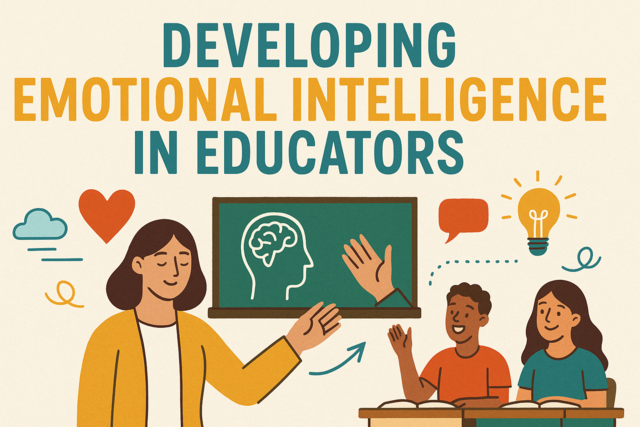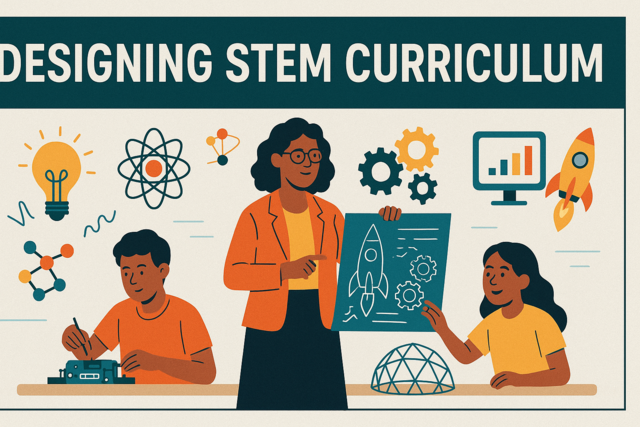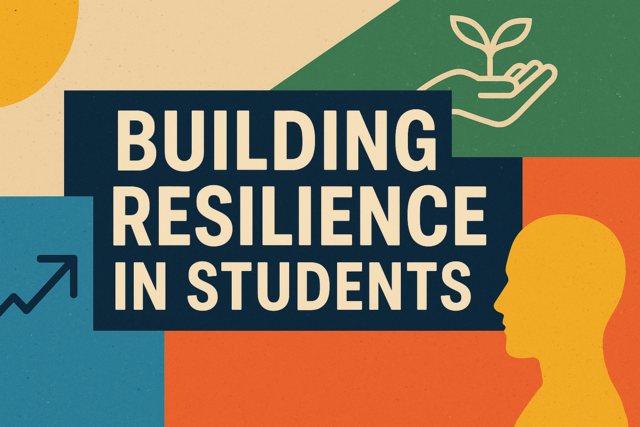Online Class: Using Research to Inform Teaching Practices

no certificate
with CEU Certificate*
-
15Lessons
-
22Exams &
Assignments -
5Hours
average time -
0.5CEUs
Course Description
Step into a world where data-driven decision-making not only enhances your teaching strategies but transforms the very essence of the learning experience you create. Allow us to introduce, "Using Research to Inform Teaching Practices"—a course meticulously designed to illuminate the path for educators who yearn to harness the undeniable power of research in shaping tomorrow's educational landscapes. This isn't just another course; it's your gateway to becoming an informed, impactful educator whose practices echo with evidence-based precision.
Imagine a classroom where every decision is backed by robust research, where each teaching method you implement isn't just a shot in the dark, but a deliberate, informed choice. Through this course, unlock the secrets behind various research paradigms in education, uncovering a spectrum of methodologies that serve as your compass. Whether it's the empirical certainty of quantitative analyses or the rich tapestry of narrative found in qualitative insights, you'll gain tools that help weave together a comprehensive view of your pedagogical environment.
Embark on a journey that begins with understanding research paradigms, paving the way for you to dive into diverse methodologies that unveil new dimensions in teaching. Picture a classroom where collaborative learning isn't merely an option—it's a practice grounded in solid research-backed strategies, where structured group activities mirror real-world scenarios, preparing your students far beyond textbooks.
But there's more. The ability to interpret and apply evidence-based insights transforms education from traditional to exceptional. You will learn to dynamically adapt to classroom challenges, fostering a classroom atmosphere that is both innovative and inclusive. No longer will you be swayed by fleeting educational trends; instead, you'll wield the power of informed decisions that cater to the nuances of diverse learning needs.
Throughout the course, you'll also delve into the captivating world of flipped classrooms and gamified learning—where education becomes an engaging and interactive experience. These aren't just passing fads; they are transformative methods that have the potential to redefine how students absorb and retain information. With these tools in hand, you'll create an immersive learning environment that sustains student enthusiasm and engagement.
In the ever-evolving digital age, you'll master the use of groundbreaking online research tools, enhancing your ability to capture, analyze, and integrate diverse data forms and sources into your teaching practice. Imagine the seamless collaboration and real-time analytics that redefine how you interact with educational content, colleagues, and students. As your research capabilities expand, so too does your influence on the academic environments within which you work.
As you weave through this tapestry of knowledge and discovery, reflective practices will anchor your journey. More than mere introspection, it is a transformative process that ignites continuous self-assessment and professional growth. Each insight gleaned from your exploration will fortify your resolve and enhance your adaptability, preparing you to meet the diverse needs of every student under your guidance.
The time is ripe for educational evolution, and "Using Research to Inform Teaching Practices" is the catalyst you need. It stands apart in its comprehensive approach and its dedication to empowering educators like you—educators who are not just participants in the classroom, but pioneers shaping the educational narratives of tomorrow. This course promises to invigorate your career, enrich your teaching, and most importantly, inspire your students.
Don't just adopt teaching strategies—transform them. Enroll today, and ensure that you are not just keeping pace with educational innovation, but actively leading the charge. By the end of this course, you'll not only be an educator; you'll be a masterful architect of informed learning experiences, with a toolkit of research-backed practices designed to foster success in every student you encounter. Make the decision that elevates your teaching from proficient to extraordinary, and start this transformative journey today.
- Completely Online
- Self-Paced
- 6 Months to Complete
- 24/7 Availability
- Start Anytime
- PC & Mac Compatible
- Android & iOS Friendly
- Accredited CEUs

Course Lessons
Lesson 1. Research Paradigms in Education
Positivism in education relies on quantitative analyses to provide broad, generalizable insights, often overlooking the nuanced, qualitative aspects of learning experiences. Although it offers empirical certainty, it may miss emotional responses and diverse perspectives critical for a full understanding of the educational landscape.Lesson 2. Educational Research Methodologies: Unveiling Insights for Improved Classroom Practices
Qualitative research delves into the intricacies of human behavior within educational contexts, offering insights that quantitative data may overlook, such as how personal student experiences influence engagement. Through techniques like interviews and focus groups, educators can grasp the nuanced dynamics of teacher-student interactions, tailoring pedagogical strategies to suit diverse learning needs.Lesson 3. Enhancing Education Through Proven Methods
Collaborative learning enriches education by leveraging social interaction, improving academic and interpersonal skills, and engaging students actively. Structured group activities reflect real-world scenarios, fostering essential communication and teamwork abilities.Lesson 4. Fostering Educational Excellence Through Research-Informed Practices
For educators, mastering research methodologies is key to enhancing classroom practices, enabling them to ground teaching strategies in evidence-based insights. Approaches like quantitative, qualitative, and mixed-methods research yield diverse data sets that drive thoughtful, data-backed decisions for improving student outcomes.Lesson 5. Quantitative, Qualitative, and Mixed Methods: A Comprehensive Guide
This lesson unveils the transformative potential of diverse research methodologies in education, emphasizing the importance of quantitative, qualitative, and mixed methods in refining teaching practices. By embedding rigorous evidence-based approaches in the classroom, educators foster inclusive, innovative, and effective learning environments for all students.Lesson 6. Evidence-Based Insights for Enhanced Classroom Practices
Thematic analysis in educational research unveils consistent themes like feedback and student-centered environments that educators can translate into transformative classroom practices. This method empowers teachers to adapt their strategies dynamically, improving student learning experiences and fostering an innovative educational ecosystem.Lesson 7. Revolutionizing Education: A Deep Dive into Innovative Teaching Practices
Flipped classrooms use at-home learning for new material, reserving class time for applied learning, fostering personalized support and deeper understanding. Similarly, gamification transforms education into engaging experiences, enhancing retention through motivational game mechanics.Lesson 8. Pedagogical Theories: A Teacher's Toolkit
Behaviorism focuses on conditioning and reinforcement to shape classroom behaviors, using methods like reward systems to motivate student participation. In contrast, Multiple Intelligences theory recognizes varied learner strengths, encouraging teachers to implement diverse instructional strategies.Lesson 9. Enhancing Classroom Dynamics with Data-Driven Strategies
The iterative nature of action research cultivates reflective practice, empowering educators to question assumptions and adapt to new insights. This fosters greater confidence and resilience, driving continuous evolution and professional growth in the face of educational challenges.Lesson 10. Iterative Cycles of Educational Improvement
Collaborative inquiry empowers educators as active participants in research-driven improvement, contrasted against top-down mandates, leveraging firsthand classroom insights for effective learning solutions. This grassroots approach improves teaching by tailoring strategies to real classroom experiences, ultimately increasing student engagement and retention.Lesson 11. Unlocking Educational Data: Mastering Online Research Tools
Emerging NoSQL databases, such as MongoDB, offer schema-less architectures accommodating diverse data formats, improving educational research flexibility and integration. Educators benefit from real-time data analytics and seamless collaborations, enhancing research capabilities in multi-institutional projects.Lesson 12. Research Source Mastery
Primary sources provide original data and insights crucial for developing evidence-based teaching strategies, such as using scholarly articles and conducting classroom research. These first-hand data empower educators to tailor approaches fitting real-world dynamics and contribute to a broader transformation in teaching methodologies.Lesson 13. Harnessing the Power of Data: Transformative Educational Insights
Incorporating data analysis into education creates an ecosystem where personalized strategies thrive, and educators navigate dynamically evolving student needs. Through professional development and technology integration, teachers refine methodologies, foster collaboration, and cultivate inclusive educational environments.Lesson 14. Harnessing Research for Teaching Excellence
High-quality research acts as a compass for educators, guiding the adoption of innovative, evidence-backed pedagogical approaches that improve student outcomes. Peer-reviewed studies provide rigorous validation, allowing educators to confidently implement research-driven strategies while continuously refining their methods through transparent and reproducible processes.Lesson 15. Transformative Reflective Practices in Education: A Comprehensive Guide
Reflective practices promote continuous self-assessment and professional growth, allowing educators to incorporate new teaching practices informed by current educational research. Through this process, teachers become better equipped to address diverse student needs, creating classrooms that support both academic and emotional development.
Learning Outcomes
- Define and compare the key characteristics of positivist, interpretivist, critical, and pragmatist research paradigms in educational settings.
- Demonstrate the application of mixed methods research by designing a study that incorporates both qualitative and quantitative data to evaluate an educational intervention.
- Conduct a basic mixed-method research design, utilizing both qualitative and quantitative data, to evaluate the effectiveness of a new teaching strategy in a simulated classroom environment.
- Define and differentiate between qualitative and quantitative research methodologies and their applications in educational contexts.
- Demonstrate the integration of technology by effectively using VR tools in history lessons to enhance student engagement and understanding.
- Identify evidence-based strategies that improve student reading comprehension by actively using formative assessments to provide real-time feedback.
- Analyze the implications of incorporating mixed-methods research in educational settings by identifying the strengths and limitations of qualitative and quantitative data integration.
- Demonstrate the ability to apply quantitative research methodologies by analyzing numerical data to evaluate educational interventions effectively.
- Analyze and interpret statistical data in educational research, employing descriptive and inferential statistics to make informed decisions on teaching strategies and curriculum development.
- Define and differentiate between qualitative, quantitative, and mixed-methods research in the context of educational studies, giving examples of when each methodology might be applied.
- Demonstrate the process of conducting a thematic analysis to identify key themes from educational research findings and apply these insights to refine teaching strategies.
- Recognize the importance of feedback in enhancing student learning by explaining its impact on engagement and performance.
- Demonstrate an understanding of innovative teaching practices by creating a lesson plan that incorporates differentiated instruction and elements of the flipped classroom model.
- Demonstrate mastery of lesson content at levels of 70% or higher.
Additional Course Information

- Document Your Lifelong Learning Achievements
- Earn an Official Certificate Documenting Course Hours and CEUs
- Verify Your Certificate with a Unique Serial Number Online
- View and Share Your Certificate Online or Download/Print as PDF
- Display Your Certificate on Your Resume and Promote Your Achievements Using Social Media

Choose Your Subscription Plan
No Certificate / No CEUs
This course only
| Includes certificate | X |
| Includes CEUs | X |
| Self-paced |

|
| Instructor support |

|
| Time to complete | 6 months |
| No. of courses | 1 course |
Certificate & CEUs
This course only
| Includes certificate |

|
| Includes CEUs |

|
| Self-paced |

|
| Instructor support |

|
| Time to complete | 6 months |
| No. of courses | 1 course |
Certificates & CEUs
Includes all 600+ courses
| Includes certificate |

|
| Includes CEUs |

|
| Self-paced |

|
| Instructor support |

|
| Time to complete | 12 Months |
| No. of courses | 600+ |
Certificates & CEUs
Includes all 600+ courses
| Includes certificate |

|
| Includes CEUs |

|
| Self-paced |

|
| Instructor support |

|
| Time to complete | 24 Months |
| No. of courses | 600+ |
Related Courses
-
 4 hours
0.4 CEUs
Embracing Change: Adapting Family Roles Over Time
+ More Info
4 hours
0.4 CEUs
Embracing Change: Adapting Family Roles Over Time
+ More Info
-
 3 hours
0.3 CEUs
High-Street to Haute: The Journey to Becoming Fashionable
+ More Info
3 hours
0.3 CEUs
High-Street to Haute: The Journey to Becoming Fashionable
+ More Info
-
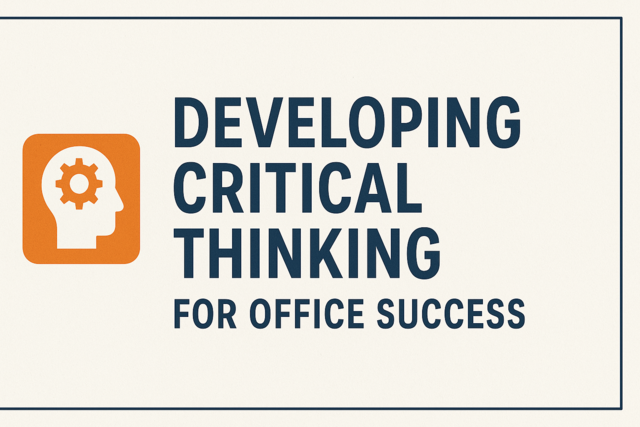 4 hours
0.4 CEUs
Developing Critical Thinking for Office Success
+ More Info
4 hours
0.4 CEUs
Developing Critical Thinking for Office Success
+ More Info
-
 5 hours
0.5 CEUs
Contemporary Luxury: Redefining Modern Fashion
+ More Info
5 hours
0.5 CEUs
Contemporary Luxury: Redefining Modern Fashion
+ More Info
-
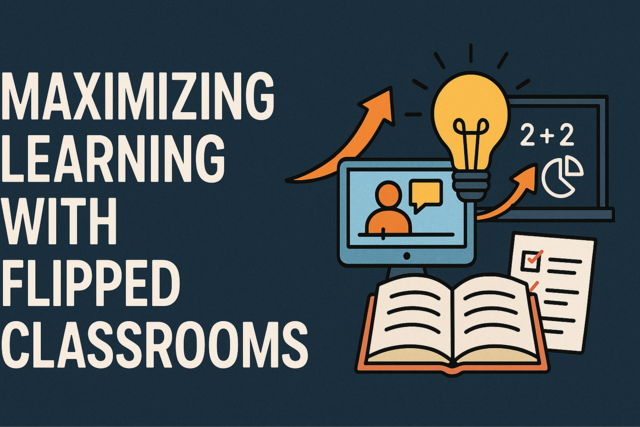 5 hours
0.5 CEUs
Maximizing Learning with Flipped Classrooms
+ More Info
5 hours
0.5 CEUs
Maximizing Learning with Flipped Classrooms
+ More Info
-
 7 hours
0.7 CEUs
Promoting Independence and Life Skills
+ More Info
7 hours
0.7 CEUs
Promoting Independence and Life Skills
+ More Info
-
 5 hours
0.5 CEUs
Lunar Magic and Moon Phases
+ More Info
5 hours
0.5 CEUs
Lunar Magic and Moon Phases
+ More Info
-
 3 hours
0.3 CEUs
Career Planning and Development
+ More Info
3 hours
0.3 CEUs
Career Planning and Development
+ More Info
-
 3 hours
0.3 CEUs
Effective Literacy Instruction in Early Education
+ More Info
3 hours
0.3 CEUs
Effective Literacy Instruction in Early Education
+ More Info
-
 6 hours
0.6 CEUs
Embracing Digital Transformation
+ More Info
6 hours
0.6 CEUs
Embracing Digital Transformation
+ More Info
-
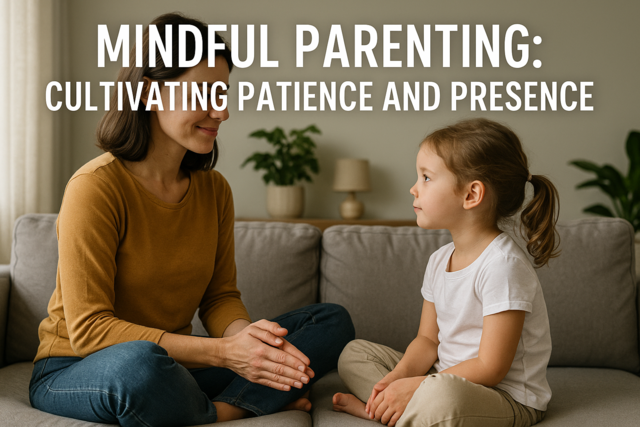 5 hours
0.5 CEUs
Mindful Parenting: Cultivating Patience and Presence
+ More Info
5 hours
0.5 CEUs
Mindful Parenting: Cultivating Patience and Presence
+ More Info
-
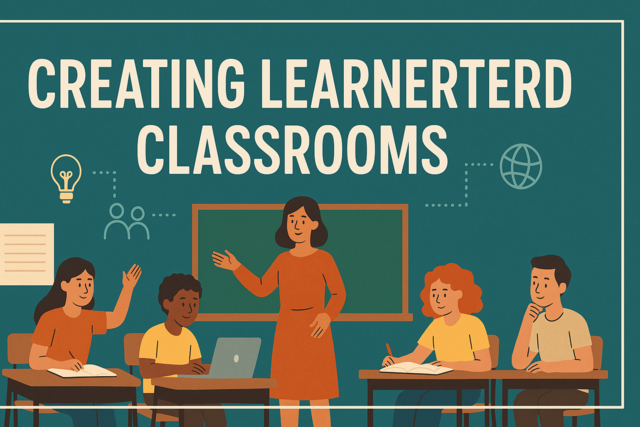 6 hours
0.6 CEUs
Creating Learner-Centered Classrooms
+ More Info
6 hours
0.6 CEUs
Creating Learner-Centered Classrooms
+ More Info
-
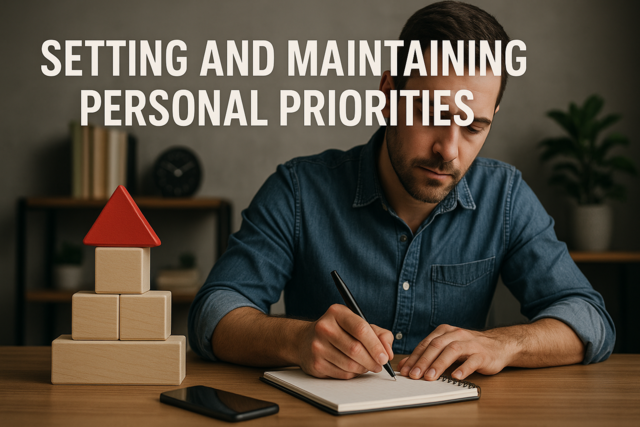 5 hours
0.5 CEUs
Setting and Maintaining Personal Priorities
+ More Info
5 hours
0.5 CEUs
Setting and Maintaining Personal Priorities
+ More Info
-
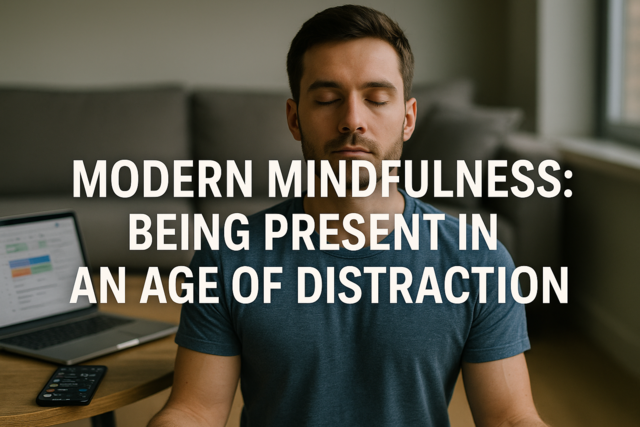 7 hours
0.7 CEUs
Modern Mindfulness: Being Present in an Age of Distraction
+ More Info
7 hours
0.7 CEUs
Modern Mindfulness: Being Present in an Age of Distraction
+ More Info
-
 6 hours
0.6 CEUs
Introduction to Data Analytics
+ More Info
6 hours
0.6 CEUs
Introduction to Data Analytics
+ More Info
-
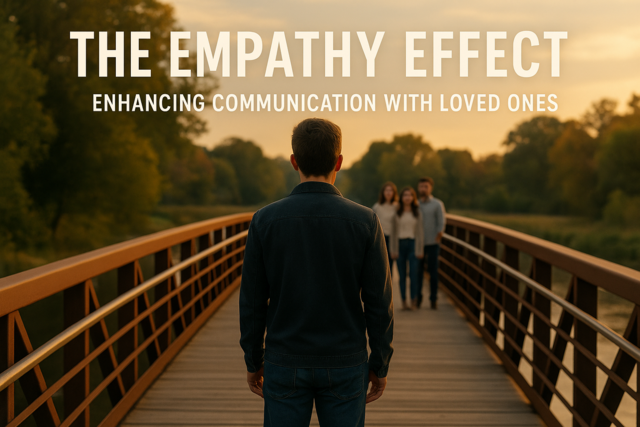 3 hours
0.3 CEUs
The Empathy Effect: Enhancing Communication with Loved Ones
+ More Info
3 hours
0.3 CEUs
The Empathy Effect: Enhancing Communication with Loved Ones
+ More Info
-
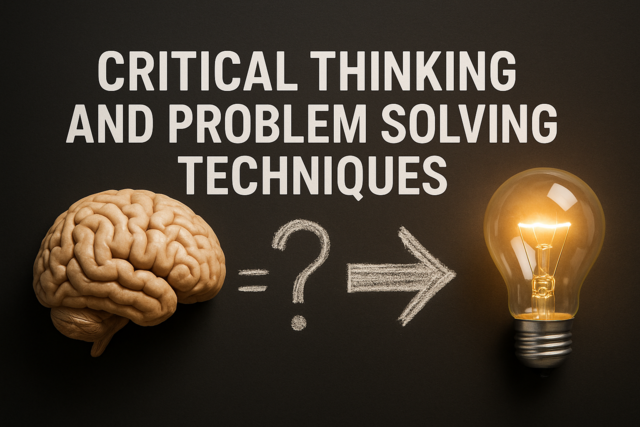 4 hours
0.4 CEUs
Critical Thinking and Problem Solving Techniques
+ More Info
4 hours
0.4 CEUs
Critical Thinking and Problem Solving Techniques
+ More Info
-
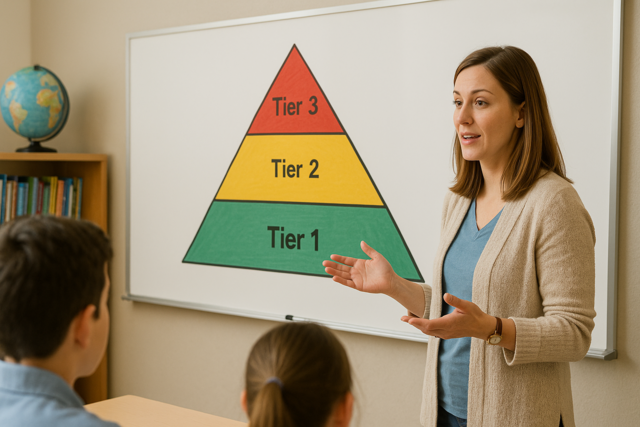 5 hours
0.5 CEUs
Implementing RTI Models in Schools
+ More Info
5 hours
0.5 CEUs
Implementing RTI Models in Schools
+ More Info
-
 6 hours
0.6 CEUs
Developing Strategic Thinking Skills
+ More Info
6 hours
0.6 CEUs
Developing Strategic Thinking Skills
+ More Info
-
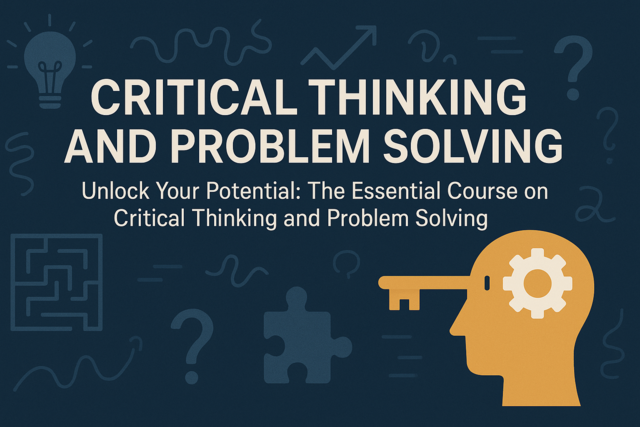 5 hours
0.5 CEUs
Critical Thinking and Problem Solving
+ More Info
5 hours
0.5 CEUs
Critical Thinking and Problem Solving
+ More Info
-
 7 hours
0.7 CEUs
Remote Work Best Practices
+ More Info
7 hours
0.7 CEUs
Remote Work Best Practices
+ More Info
-
 4 hours
0.4 CEUs
Design Dynamics: The Rise of Contemporary Luxury Designers
+ More Info
4 hours
0.4 CEUs
Design Dynamics: The Rise of Contemporary Luxury Designers
+ More Info
-
 7 hours
0.7 CEUs
Volunteering and Philanthropy Skills
+ More Info
7 hours
0.7 CEUs
Volunteering and Philanthropy Skills
+ More Info
-
 3 hours
0.3 CEUs
Synergy in Relationships: Creating a Balanced Partnership
+ More Info
3 hours
0.3 CEUs
Synergy in Relationships: Creating a Balanced Partnership
+ More Info
-
 5 hours
0.5 CEUs
Fostering a Positive Attitude
+ More Info
5 hours
0.5 CEUs
Fostering a Positive Attitude
+ More Info
-
 3 hours
0.3 CEUs
Customer Service Excellence
+ More Info
3 hours
0.3 CEUs
Customer Service Excellence
+ More Info
-
 4 hours
0.4 CEUs
Narratives of Love: Crafting Your Relationship Story
+ More Info
4 hours
0.4 CEUs
Narratives of Love: Crafting Your Relationship Story
+ More Info
-
 5 hours
0.5 CEUs
Coaching and Mentoring Skills
+ More Info
5 hours
0.5 CEUs
Coaching and Mentoring Skills
+ More Info
-
 3 hours
0.3 CEUs
Team Building and Collaboration
+ More Info
3 hours
0.3 CEUs
Team Building and Collaboration
+ More Info
-
 7 hours
0.7 CEUs
Cultural Perspectives on Trauma: Understanding Global Variations
+ More Info
7 hours
0.7 CEUs
Cultural Perspectives on Trauma: Understanding Global Variations
+ More Info
-
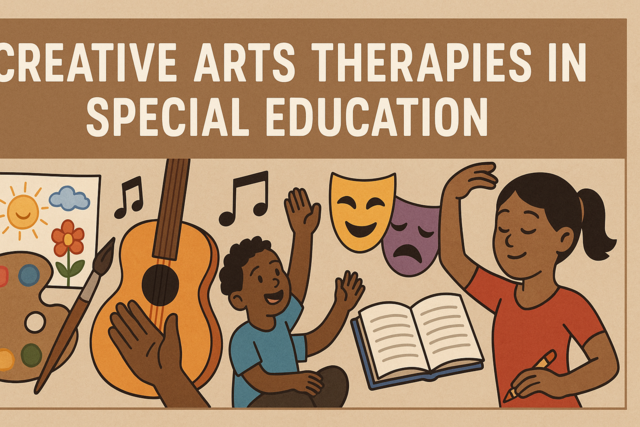 3 hours
0.3 CEUs
Creative Arts Therapies in Special Education
+ More Info
3 hours
0.3 CEUs
Creative Arts Therapies in Special Education
+ More Info
-
 4 hours
0.4 CEUs
Applying Creativity in Everyday Life
+ More Info
4 hours
0.4 CEUs
Applying Creativity in Everyday Life
+ More Info
-
 6 hours
0.6 CEUs
Modern Tribes: Building Supportive Friend Circles
+ More Info
6 hours
0.6 CEUs
Modern Tribes: Building Supportive Friend Circles
+ More Info
-
 4 hours
0.4 CEUs
Preparing for a Career Change
+ More Info
4 hours
0.4 CEUs
Preparing for a Career Change
+ More Info
-
 4 hours
0.4 CEUs
Esoteric Traditions and Ancient Wisdom
+ More Info
4 hours
0.4 CEUs
Esoteric Traditions and Ancient Wisdom
+ More Info
-
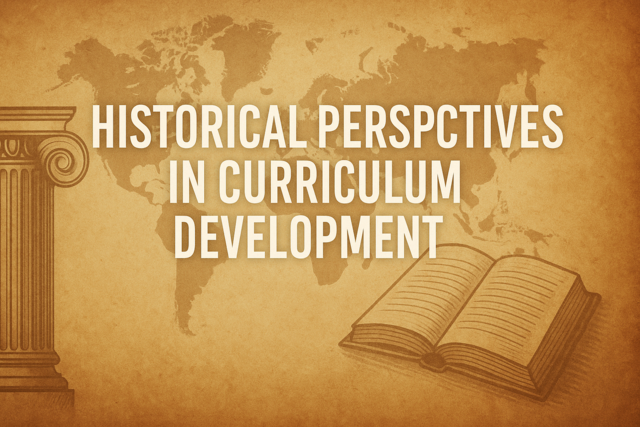 3 hours
0.3 CEUs
Historical Perspectives in Curriculum Development
+ More Info
3 hours
0.3 CEUs
Historical Perspectives in Curriculum Development
+ More Info
-
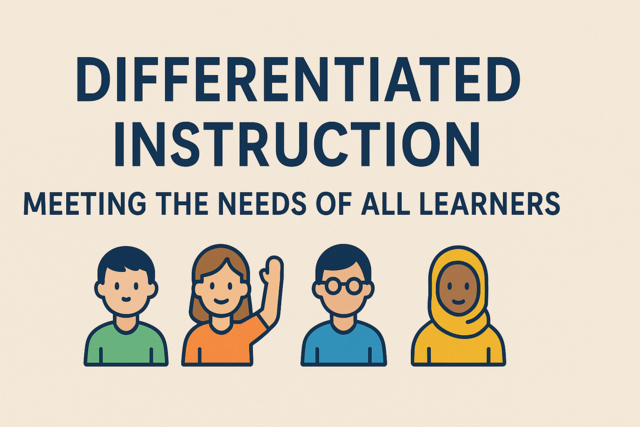 3 hours
0.3 CEUs
Differentiated Instruction: Meeting the Needs of All Learners
+ More Info
3 hours
0.3 CEUs
Differentiated Instruction: Meeting the Needs of All Learners
+ More Info
-
 7 hours
0.7 CEUs
Pioneers of Anomalous Sciences
+ More Info
7 hours
0.7 CEUs
Pioneers of Anomalous Sciences
+ More Info
-
 4 hours
0.4 CEUs
Emergency Preparedness and Survival Skills
+ More Info
4 hours
0.4 CEUs
Emergency Preparedness and Survival Skills
+ More Info


